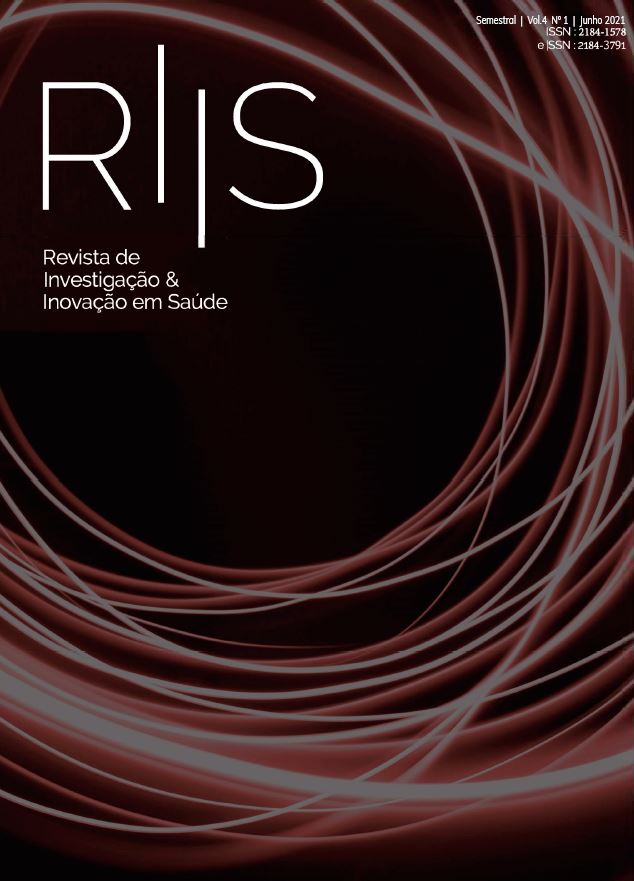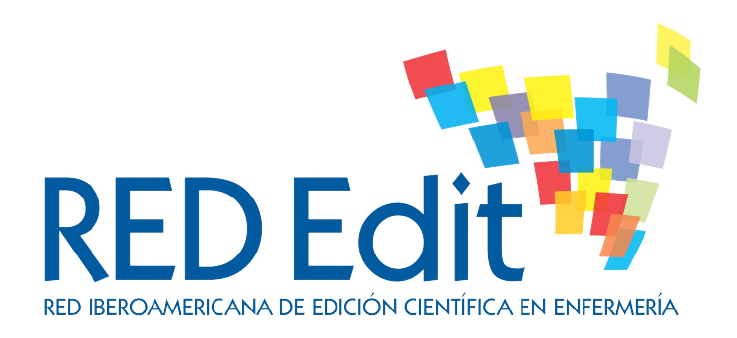Social representation of rehabilitation nursing for nurses
DOI:
https://doi.org/10.37914/riis.v4i1.124Keywords:
rehabilitation nursing; social psychology; nursesAbstract
quality in health is a multiprofessional task, in which rehabilitation nursing adds value to the process of care, maximizing the person's recovery potential. In this context, it is important to understand whether the vision within the profession corresponds to the effective mission of these professionals. Objective: to describe the social representation of rehabilitation nursing for nurses. Methodology: qualitative, exploratory and descriptive study, with an accidental non-probabilistic sample of 110 participants, with nurses as the target population. Data collection was performed through a free word association test, sent electronically, to nurses in the network of a higher education institution. In the treatment of data, computer software IRAMUTEQ was used. Results: through similarity analysis, autonomy, recovery, kinesitherapy and training were identified as central expressions and linked by strong ramifications. The analysis of the word cloud highlights autonomy, recovery, kinesitherapy, training and quality of life as the most evoked words. Conclusion: the results are in line with the specific skills of the specialist nurse in rehabilitation nursing, and the common skills of the specialist nurse are not evident. It is therefore relevant to understand what leads participants to not recognize this dimension of specialized professional practice.
References
Abric, J. (2011). Les représentations sociales: aspects théorétiques. In J.Abric (Ed.), Pratiques Sociales et Représentations (pp. 15–46). Paris, France: Quadrigue/Presses Universitaires de France.
Camargo, B. V., & Justo, A. M. (2018). Tutorial para uso do software IRaMuTeQ. Retirado de IRaMuTeQ: http://www.iramuteq.org/documentation/fichiers/tutoriel-portugais-22-11-2018
Coutinho, M.L., Bú, E. (2017). A Técnica de Associação Livre de Palavras sobre o Prisma do Software Tri-Deux-Mots (version 5.2). Revista Campo do Saber, 3(1), 219-243. Recuperado de: https://periodicos.iesp.edu.br/index.php/campodosaber/article/viewFile/72/58
De Rosa, A.M., Bocci, E., & Dryjanska, L. (2018). The Generativity and Attractiveness of Social RepresentationsTheory from Multiple Paradigmatic Approaches in Various Thematic Domains:An Empirical Meta-theoretical Analysis on Big-data Sources from the Specialised Repository “SoReCom‘A.S.de Rosa’ @-library”. Papers on Social Representations, 27(1), 6.1-6.35. Recuperado de: http://psr.iscte-iul.pt/index.php/PSR/index
Ferreira, C., Lisboa, C., Moreira, D., Sousa, G., Teixeira, T., Príncipe, F., & Mota, L. (2019). Transporte inter-hospitalar do doente crítico: representação social dos enfermeiros. Revista de Investigação & Inovação em Saúde, 2(2), 29-38. https://doi.org/10.37914/riis.v2i2.55 DOI: https://doi.org/10.37914/riis.v2i2.55
Fronteira, I., Jesus, E.H., & Dussault, G. (2020). A enfermagem em Portugal aos 40 anos do Serviço Nacional de Saúde. Ciência e Saúde Coletiva, 25(1), 272-282.https://doi.org/10.1590/1413-81232020251.28482019 DOI: https://doi.org/10.1590/1413-81232020251.28482019
Gaspar, L., Ferreira, D., Vieira, F., Machado, P., & Padilha, M. (2019). O Treino de Exercício em Pessoas com Doença Respiratória Crónica Estabilizada: uma Scoping Review. Revista Portuguesa de Enfermagem de Reabilitação, 2(1), 59–65. https://doi.org/10.33194/rper.2019.v2.n1.08.4567 DOI: https://doi.org/10.33194/rper.2019.v2.n1.08.4567
Lei n.º 156/2015, de 16 de Setembro. Diário da República n.º 181 – I Série. Assembleia da República. Lisboa, Portugal.
Lopes, G., Rolim, I., Alves, R. S., Pessoa, T., Maia, E. R., Lopes, M., … Queiroz, R. (2021). Social representations on diabetic foot: contributions to PHC in the Brazilian Northeast. Representações sociais sobre pé diabético: contribuições para Atenção Primária à saúde no Nordeste brasileiro. Ciência & Saúde Coletiva, 26(5), 1793–1803. https://doi.org/10.1590/1413-81232021265.04702021 DOI: https://doi.org/10.1590/1413-81232021265.04702021
Martins, M. M., Ribeiro, O., & Silva, J.V. (2018). O Contributo dos Enfermeiros Especialistas em Enfermagem de Reabilitação para a Qualidade dos Cuidados. Revista Portuguesa De Enfermagem De Reabilitação, 1(1), 22–29. https://doi.org/10.33194/rper.2018.v1.n1.04.4386 DOI: https://doi.org/10.33194/rper.2018.v1.n1.04.4386
Meleis, A.I. (2015). Transitions Theory. Em M. Smith, & M.E. Parker (Ed.), Nursing theories and nursing practice (4th Edition ed., pp. 361-380). F. A. Davis Company.
Moscovici, S. (1981). On social representations. Em J.P. Forgas (org.), Social Cognition - Perspectives on Everyday Understanding. London: AcademicPress.
Ordem dos Enfermeiros (2018). Padrões de Qualidade dos Cuidados Especializados em Enfermagem de Reabilitação. Lisboa, Portugal: Autor. Retirado de: https://www.ordemenfermeiros.pt/media/8192/ponto-4_regulamento-dos-padr%C3%B5es-qualidade-ceer-1.pdf
Ravn, I. M., Beedholm, K., Frederiksen, K., Kvangarsnes, M., Foss, I. C., & Knutsen, I. R. (2020). In search of the changeable: An analysis of visual representations of nursing in Norwegian and Danish professional nursing journals, 1965-2016. Nursing Inquiry, 27(3), e12340. https://doi.org/10.1111/nin.12340 DOI: https://doi.org/10.1111/nin.12340
Regulamento n.º392/2019, de 3 de maio. Diário da República n.º 85 – II Série. Ordem dos Enfermeiros. Lisboa, Portugal.
Regulamento n.º 140/2019, de 6 de fevereiro. Diário da República n.º 26 – II Série. Ordem dos Enfermeiros. Lisboa, Portugal.
Regulamento n.º 168/2011, de 8 de março. Diário da República n.º 47 – II Série. Ordem dos Enfermeiros. Lisboa, Portugal.
Rubira-García, R., Puebla-Martínez, B., & Gelado-Marcos, R. (2018). Social Representations in Studying Information, Knowledge, and Mediations: A Critical Review. Social Sciences, 7(12), 256. http://dx.doi.org/10.3390/socsci7120256 DOI: https://doi.org/10.3390/socsci7120256
Tavares, D.W., Brito, R.C., Córdula, A.C., Silva, J.T., & Neves, D.A. (2014). Protocolo verbal e teste de associação livre de palavras. Ponto de Acesso, 8(3), 64-79. Retirado de https://portalseer.ufba.br/index.php/revistaici DOI: https://doi.org/10.9771/1981-6766rpa.v8i3.12917
Downloads
Published
How to Cite
Issue
Section
License
Copyright (c) 2021 Isabel de Jesus Oliveira, Elisabete Ferreira, Daniela Neves, Ana Margarida Carvalho, Mariana Silva, Liliana Serrano, Bruno Delgado

This work is licensed under a Creative Commons Attribution 4.0 International License.















